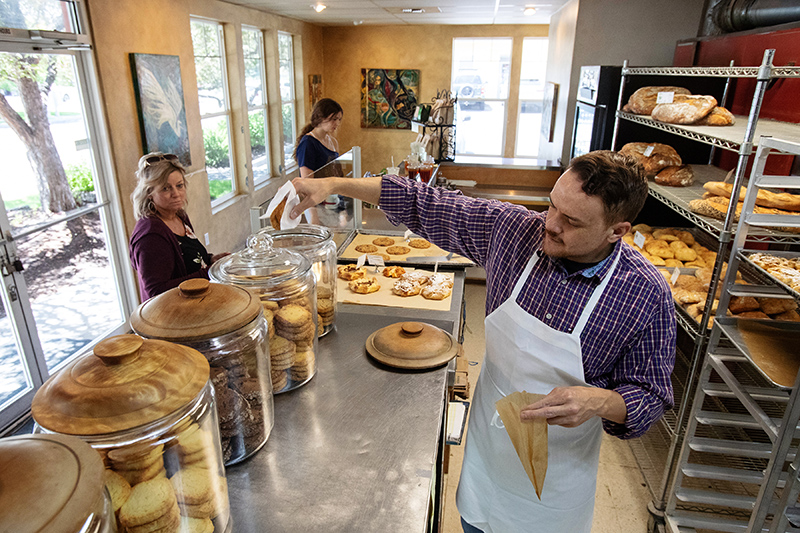Kindness an antidote to internet vitriol
Published 12:00 am Friday, January 11, 2019

- (123RF)
“They’re rioting in Africa,” lyrics to “The Merry Minuet” go, and this week, that’s true at Kruger National Park, South Africa.
“They’re starving in Spain,” they continue. In Spain, the unemployment is above 15 percent, and youth unemployment is above 34 percent.
“The whole world is festering with unhappy souls,” according to the 1958 Kingston Trio song,
“… And I don’t like anybody very much.”
How innocent that sounds in the age of the internet. For all the good it does, and it truly does lots of good, the internet has a dark side that makes the “The Merry Minuet” sound positively cheerful.
It’s the anonymity of the thing that’s the problem, I think. Someone can create an online persona that offers no clue to the owner’s true identity, where they’re from or much of anything else. For some folks, that’s mighty liberating, in an ugly sort of way.
Thus, an assistant professor at the University of Arkansas was mistaken for a protester at the 2017 “Unite the Right” demonstration Charlottesville, Virginia, more than 1,000 miles away, and the public shaming began. The professor was harassed at work, by telephone, Twitter, on Facebook. It got so bad that the man he’d been confused with, the real protester, finally came forward and identified himself.
I don’t know what can be done to change the internet, beyond limiting one’s exposure to it, but a young woman I know and her lifelong friend are working to offer a space of quiet to offset all that noise.
Ashley Kaneda of Bend and Sarah Longwell are the two women behind the Let’s Do Kind website and blog. They’ve known each other for years, decades, really, and while their lives have taken very different turns, they’ve remained close friends and agree the world would be a better place if we’d all turn down the volume and vitriol of our rhetoric and behave in a way our mothers would be proud of.
The website is a mixture of musings about kindness from Kaneda and Longwell and contributions from children and other readers. It highlights some businesses that “do kind” on a daily basis. It’s an easy read read and it serves to remind us that not only is being kind not expensive, it feels pretty darned good when you indulge in it.
Kindness has so many faces, some visible, some known only among the few people involved.
We’ve all seen policemen and others help children with few prospects of a merry Christmas find something to put under the tree, and we may even have helped the folks at church or elsewhere fill baskets with holiday food. Those are acts of kindness.
There’s more than that to kindness, however. Unprompted individual acts, paying forward a cup of coffee, perhaps, or putting your change in a donation box, are kind.
So, too, are the acts that are spontaneous and from the heart. Lending a friend a shoulder to cry on is a gift I’ve given and received. A teacher I know practiced kindness almost daily, making sure every child in his small class knew how special he thought they were. Even calling your grandmother can count. Kindness, in other words, needn’t cost a cent.
Kaneda and Longwell hope their blog will help inspire others to be kind, to folks they know, of course, but just as important, to strangers. Kindness, I think they’d tell you, is something you can give away painlessly, and the more often you do it, the better you feel.
— Janet Stevens is deputy editor of The Bulletin. Contact: 541-617-7821, jstevens@bendbulletin.com
Editor’s note: This column has been corrected to fix an incorrect name.






